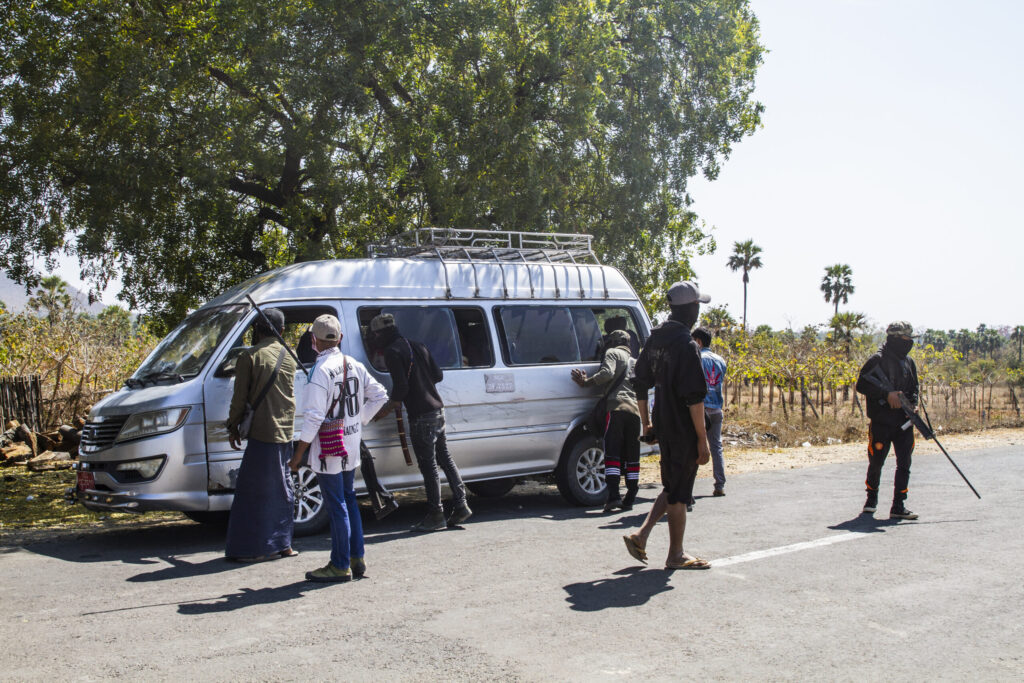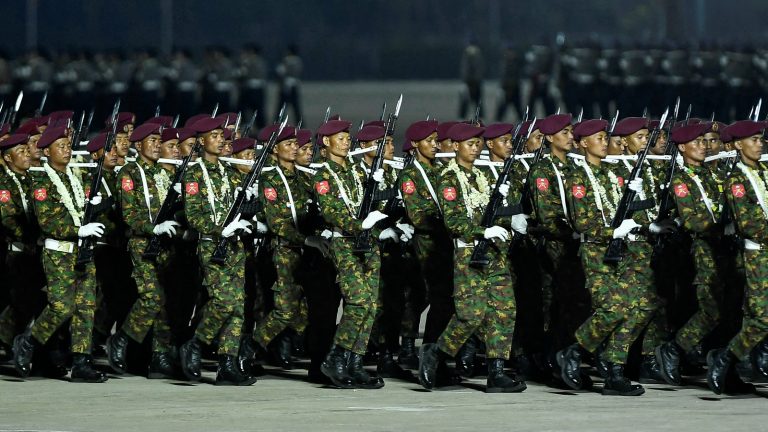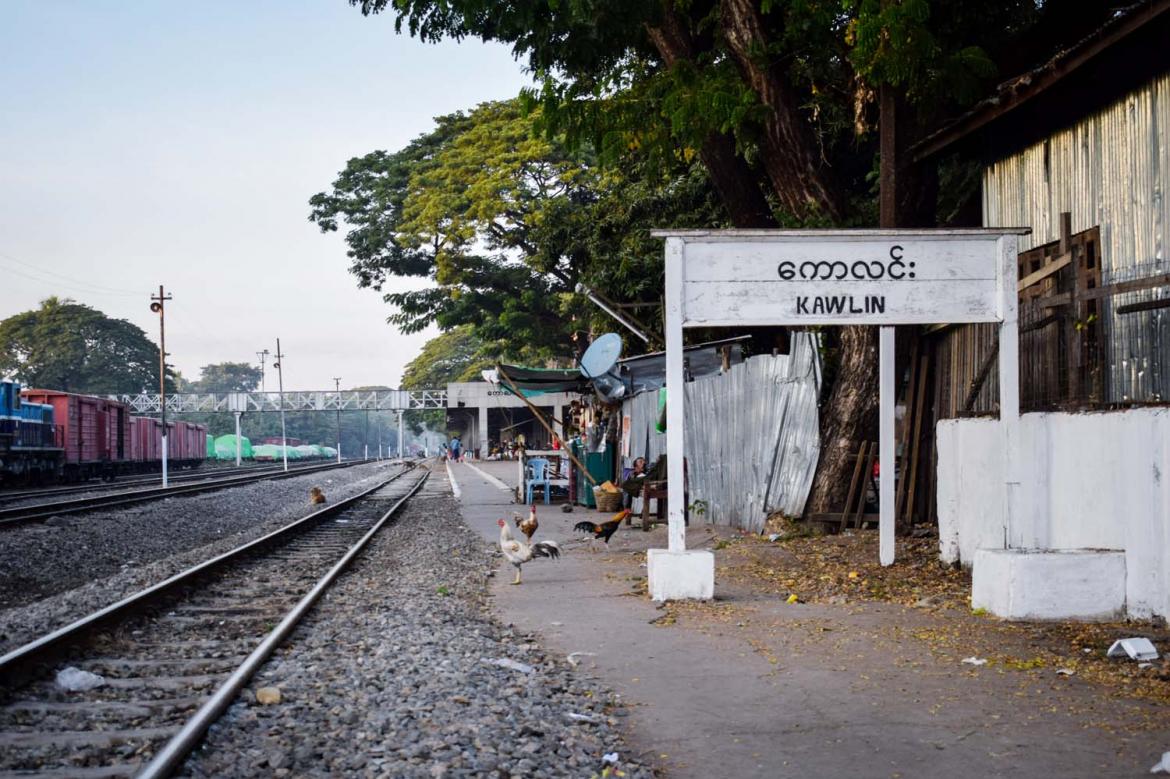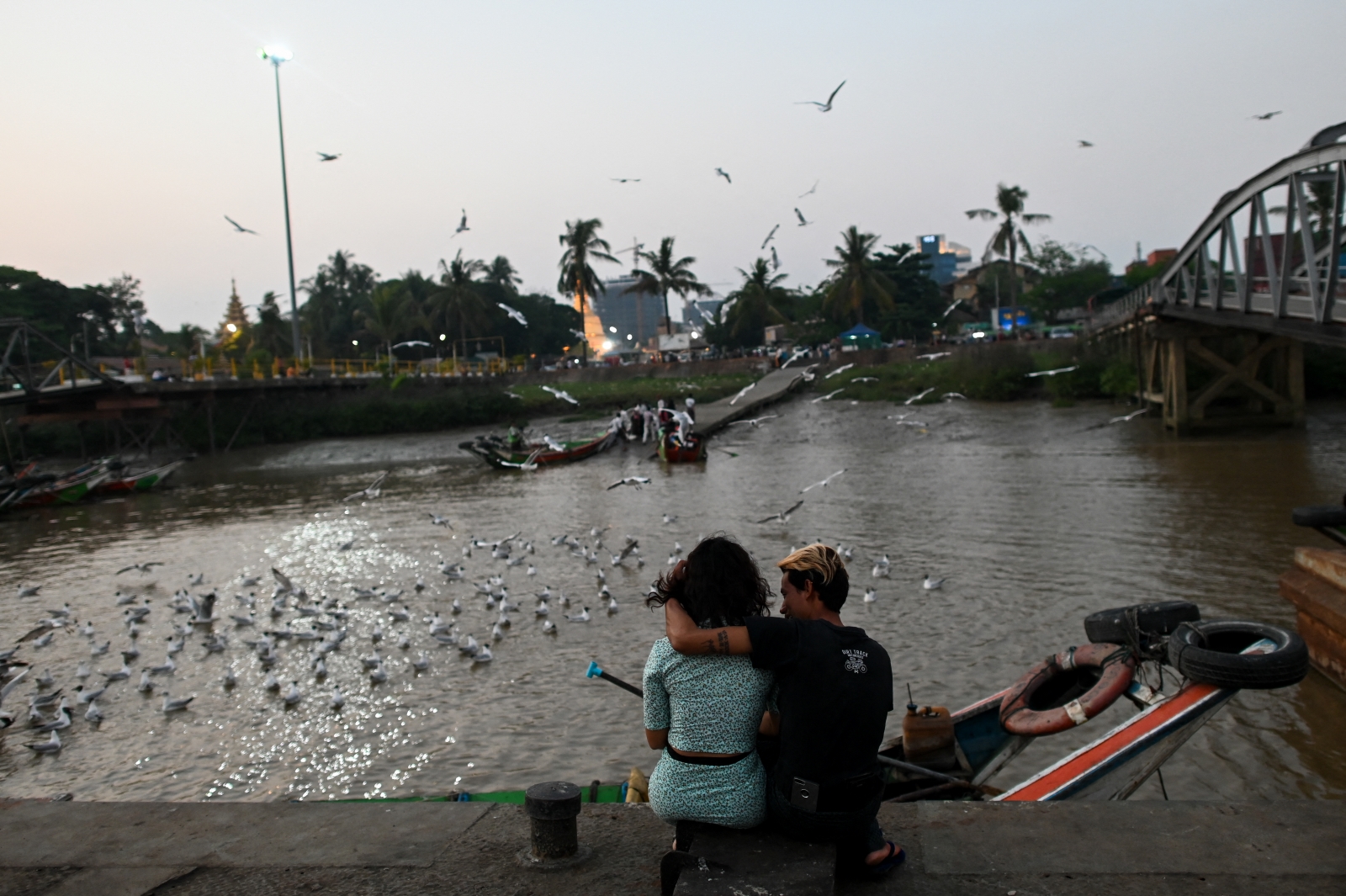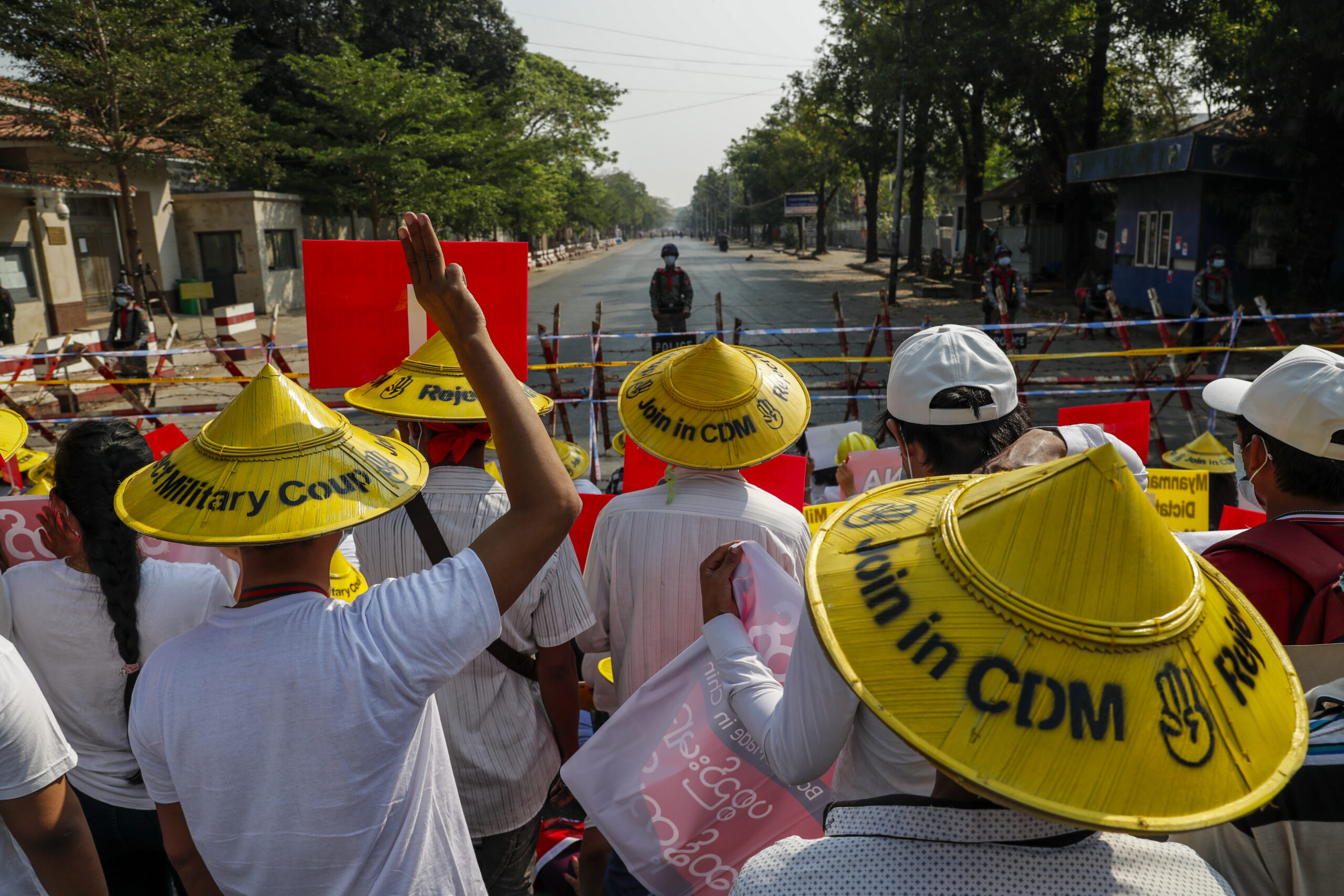Taxes help to fund Myanmar’s anti-junta struggle and many in Sagaing Region are willing to pay them, but some residents complain of an unfair burden and say a lack of oversight is enabling corruption.
By FRONTIER
In February 2022, the National Unity Government announced a new policy on local tax collection in areas of Myanmar under its control.
The main goal of the NUG, a parallel administration established by lawmakers ousted in the 2021 coup, was to fund the armed resistance and its social services. However, the policy was also aimed at preventing People’s Defence Force fighters under its command from collecting arbitrary taxes at their own initiative. There had been complaints that PDF groups were jostling among themselves to raise funds, setting up numerous toll gates that were burdening local people.
Under the policy, township-based People’s Administration Teams would oversee toll gates and other forms of local taxation with the help of armed People’s Defence Teams. However, residents and businesspeople in Sagaing Region, a resistance stronghold, said toll gates on roads and rivers have only proliferated, making it harder to make a living as the broader economy suffers.
Ko Myint Kyaw*, a truck driver who has plied the roads between Sagaing, Mandalay Region and Kachin State for more than six years, said resistance toll gates increased from 2022, greatly adding to his costs. “Now we have to pass both regime and the resistance checkpoints. There are several of them on every road out of Shwebo [in Sagaing],” he told Frontier. “When our trucks go through the resistance checkpoints, we have to pay between K30,000 and 50,000 [US$9-$15 at the market rate] at each of them. Cars also have to pay a toll.”
There are also resistance checkpoints levying tolls along the Chindwin River, which traverses Sagaing from north to south. Ko Than Maung*, a member of an NUG-aligned resistance group in Kani Township, said boats transporting timber are taxed at least K100,000 ($28 at the market rate), while a minimum of K30,000 is levied on vessels carrying rice, edible oil and other foodstuffs.
U Myo Nyunt*, a rice merchant in Shwebo Township, said most residents are willing to pay taxes to the resistance but there are too many checkpoints demanding payment.
“I want to pay taxes to the NUG, I really do. But I’d like them to reduce the number of checkpoints collecting tolls. It’s very inconvenient having to pay taxes four or five times in a single trip,” he said.
Funding revolution
Since its establishment in April 2021, the parallel government has faced many hurdles in funding its struggle against the military regime. Many of the difficulties derive from the junta’s control of the national banking system and its capacity to trace and block transfers to the resistance and punish those who make them.
In search of workarounds, the NUG has turned to increasingly creative methods including the sale of bonds, an online lottery and the selling of shares in junta-owned properties, including a house owned by junta chief Senior General Min Aung Hlaing in Yangon. But, according to a report by the thinktank International Crisis Group in December 2022, the NUG gets its largest share of funding via donations from the Myanmar diaspora abroad. This makes taxation in resistance-controlled areas a largely untapped source of potential funds.
Ko Maw Naing*, a member of the Khin-U Township PAT in Sagaing, told Frontier that given the dangers of collecting taxes in a war zone, the responsibility falls in practice on the NUG’s Ministry of Defence.
He said that since June 2022, those who pay taxes have been given a receipt to avoid multiple taxation and taxpayers can complain to local resistance authorities if they don’t receive one. However, those who don’t pay can expect punishment.
“If we find out traders aren’t paying taxes, we fine them, but we don’t beat them up. If they refuse to pay we can arrest them for a few days, but we don’t face that situation often,” he said.
Maw Naing added that taxes are also levied on the sale of fuel, cement, liquor and other products but not foodstuffs, so as not to burden residents too much.
But despite the greater orderliness he described, conflicts have sometimes erupted between resistance groups over the right to collect revenue.
The most infamous case happened in August 2022, in Sagaing’s Wetlet Township, when PDF fighters under NUG command confronted Bo Tiger, an independent resistance group, for collecting its own taxes. A shooting ensued and two Bo Tiger members were killed. The group asked the NUG to investigate the issue, but no action has been taken so far.
Mystery rates
While several Sagaing residents said they were happy to pay resistance taxes within reasonable limits, they wanted more consistency and transparency on rates.
“We don’t know what the NUG tax rates are,” said the rice merchant Myo Nyunt. “In Shwebo they collect K30,000 per truck, but we have to pay different rates in other townships. It’s a mess.”
Myint Kyaw, the truck driver, had a similar complaint. “We have to pay taxes at each checkpoint, but rates vary depending on who collects the taxes and on the township,” he said.
Frontier tried to clarify tax rates with the NUG’s finance and defence ministries but received no answer.
Once collected, the NUG policy prescribes that 40 percent of taxes go to resistance fighters and 30pc to township PATs, while the NUG takes the remaining 30pc to fund its education and health systems.
“This money plays an important role in our revolution and our main priorities are military. We have to buy weapons and ammunition with this money,” Maw Naing explained.
But a lack of transparency makes it hard to know how much the parallel government is collecting.
Presidential spokesperson U Kyaw Zaw told The Irrawaddy in February last year that the NUG had collected K3 billion in taxes since it was formed, but requests from Frontier for an updated figure went unanswered.
“The main thing we want to know is how much tax revenue is received each month. The NUG should be transparent about that and tell the public how these taxes are spent,” said Ma Thandar*, an anti-coup activist in Sagaing.
Meanwhile, a lack of oversight has fed allegations that some local resistance authorities are misappropriating funds.
Than Maung, the resistance fighter, explained that members of the Kani Township PAT had misused money collected from trucks carrying timber in mid-2022.
“The amount they got from the trucks and the amount they reported were different,” he said, explaining that, after receiving a complaint from residents and traders, they discovered that the PAT had collected K5 million from a timber merchant but only reported K2.5 million.
“The problem is that the local PAT is the only body keeping tax records and they can do whatever they want with the money. There are some members who are using the tax revenue for their own benefit,” he said.
He described another case in June 2022 when the Kani PAT seized a boat carrying timber, which they sold to a trader for K200 million. However, the PAT didn’t share the earnings with local armed resistance groups, he alleged. He said they filed a complaint to the NUG defence ministry but no action was taken.
The activist Ma Thandar said it was time the parallel government exercised more oversight over local authorities. “I think the NUG should solve these tax problems on the ground,” she said. “If they find corruption, they have to take action, because the money is collected from the people.”
*indicates the use of a pseudonym for security reasons


